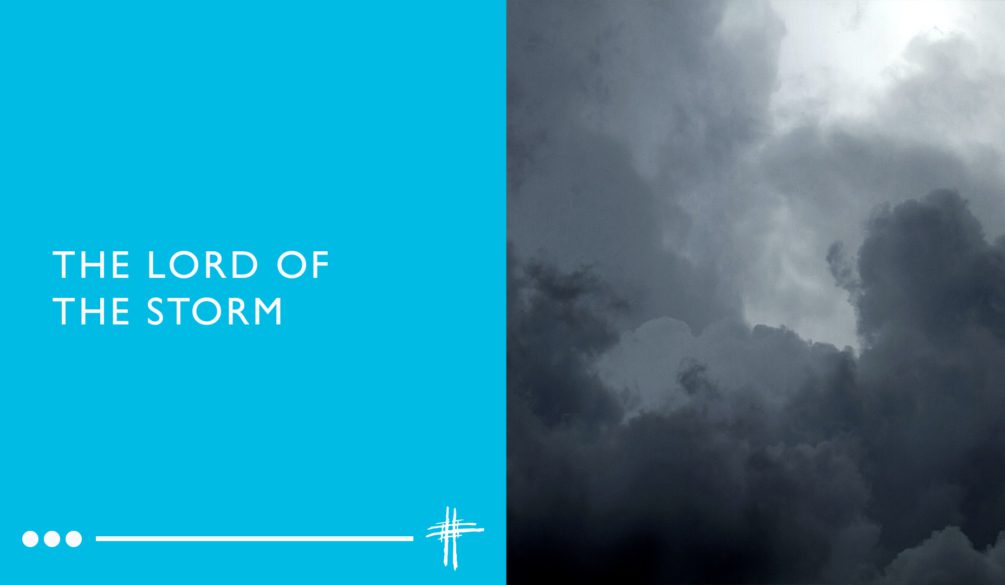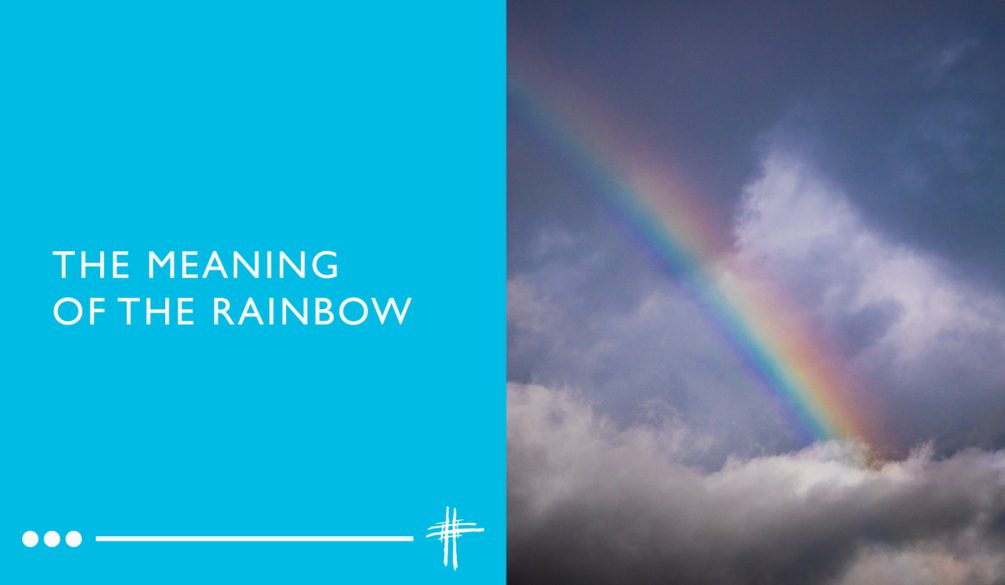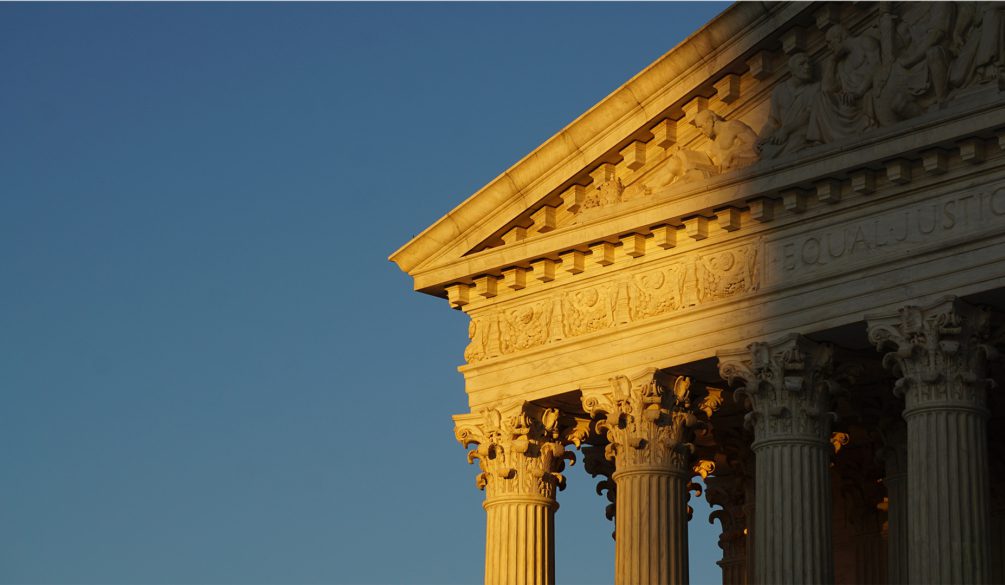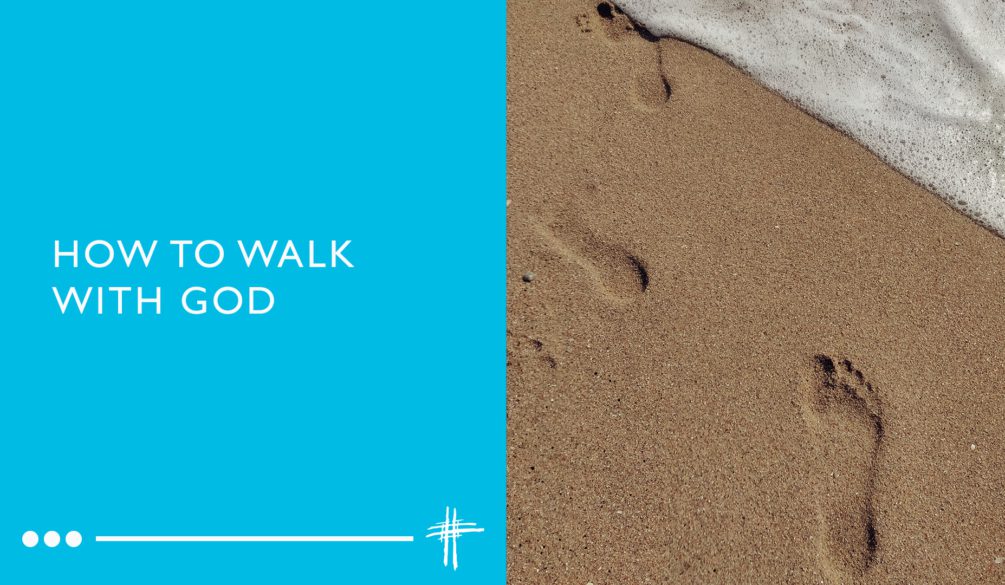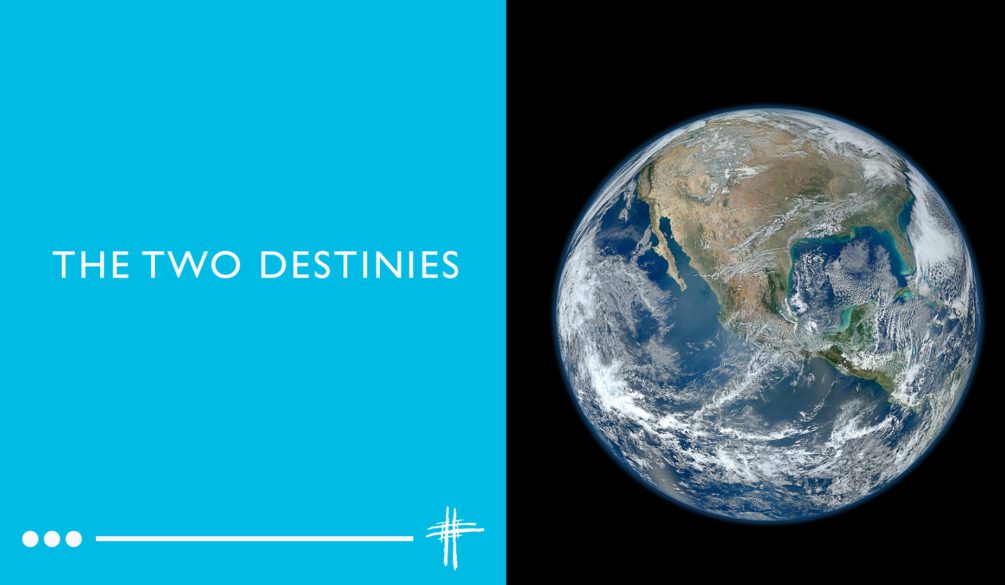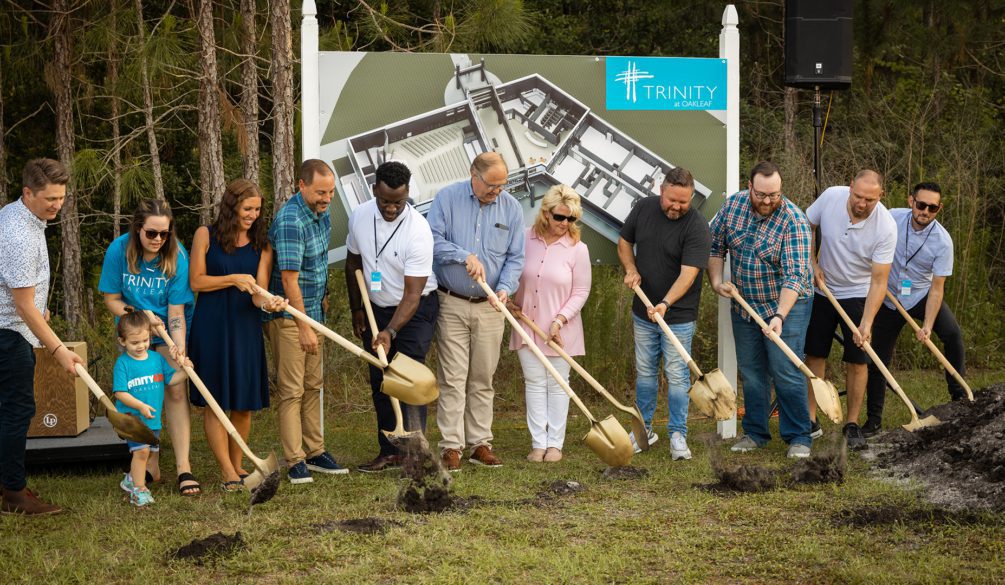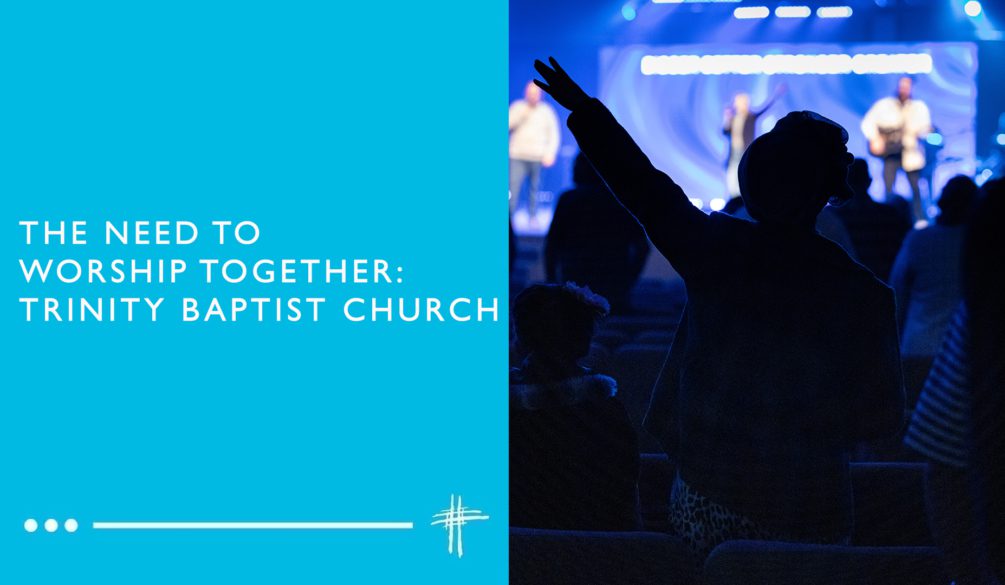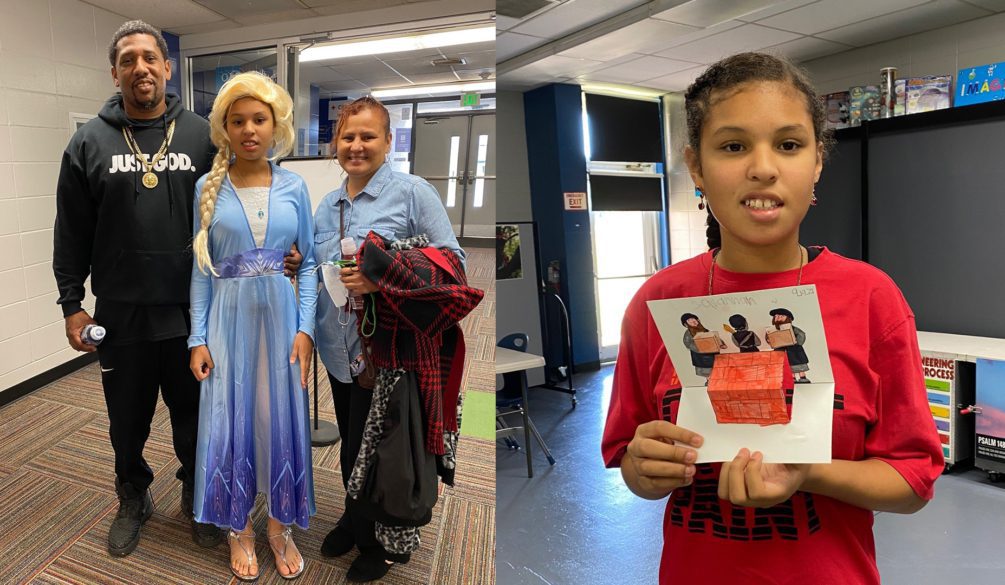2022
The Lord of the Storm
Genesis. The book that taught us about Noah, the flood, and courageous faith. But is there more to learn? Why yes, there is! But it’s a topic that we often find a little uncomfortable, and in some instances, tend to avoid. It is the topic of divine judgement. (stylerecap.com) The Bible teaches us about several different judgements. Most notably are:
- The Judgment Seat of Christ (2 Corinthians 5:10)
o The place where Christians appear before God to be rewarded for their life and service to God on earth. - Great White Throne Judgment (Revelation 20:11-15)
o The final judgment of sinners where they are judged for their rejection of Jesus and cast into the lake of fire.
As such, we can learn a lot from the story of the flood and how to prepare for God’s divine judgement. The flood provides an occasion to teach us what is beneath the judgment of God and why it is necessary.
The Necessity of Judgment
Whether we like to admit it or not, it’s human nature to question God. When we look at situations like the flood, we may ask. “Why would God destroy everyone? God is a God of love, so why does it matter what we do and how we behave?” The answer: Genesis 6 shows us that God’s judgment is the result of humanity’s violence and evil in the world. Violence corrupts and destroys creation, essentially making it unrecognizable from God’s original intent when he created it. Thus, if there is no judgment from God, there is no way to stop humanity from destroying itself once it is overcome with violence and corruption. In the case of the flood, it was a vicious cycle that God stepped into out of love to end. God is both the ultimate creator and supreme judge of all. As a supreme judge, God:
- Makes sense of the violence in nature through the lens of what is morally right and wrong.
- Gives us a way to deal with personal wrongs and offer forgiveness to others.
- Keeps us from taking matters into our own hands and allows us to let God fight our battles.
The flood teaches us that there is a God who is an ultimate creator and judge, and that the judge is not us. We have to allow God to judge for us. Now that we know why divine judgment is necessary, it is time to explore its complexities.
The Complexity of Judgment
When we look at Genesis, we see how violent the world was. The world “grieved the heart of God” and caused him immeasurable pain. Judgement, like the flood, is complex because while it ended violence and corruption, it caused God pain. The way we live, what we do, and how we experience life really matters to God. When we destroy God’s plan for our lives, it hurts him beyond measure.
Judgment is complex because:
All judgment is born out of God’s heart.
God has tied his heart to our well-being. He chooses to stay with us and not forsake us. At the cross, Christ wept in agony as he secured our redemption. God suffers when we turn to sin because God loves us and refuses to abandon us.
God does not just give judgment, but he takes judgment upon himself.
God does not just give judgment, he also takes it. His cup is filled with suffering. At the cross, he is the one that took on the weight of judgment so that we would not have to be judged. Tim Keller said, “If he’s just a God of truth, he’s not going to suffer. Right? He just smites people. If he’s just a God of love and he accepts and tolerates everybody, he’s just going to accept people. If he’s a God of truth and love, if he’s a God of holiness and absolute compassion, he suffers. It’s the nature of God. When God saw what Adam and Eve did, when God saw what we did, he knew because of who he was he was going to suffer more deeply than anybody else, and yet he let history go on. 1 “
With this, we now understand why divine judgment is complex but necessary, but what is the solution?
The Solution to Judgment
When we have an infinitely holy and loving God, there must be a solution to judgment. The flood presents a pattern for a solution we can apply to our lives. We learn from the flood that:
It is a picture of salvation through judgment.
Not salvation in spite of judgment, not salvation and judgment, not half salvation and half judgment; it’s salvation through judgment. 2 Noah escaped; God still provided a way out through the ark.
The world needed a fresh start.
Humanity’s violence destroyed the world. It was disintegrating, crumbling, decaying, and God had to stop it. The world needed a new beginning so God decided that Noah and his family would be the ones to help start over.
We need a place of safety in times of judgment.
It all comes back to Noah’s ark. God provided Noah (and will also provide to us) a solution when judgment was coming. We need to be wise, listen to God, and get into the ark.
As Christians, the flood (trouble and judgment) will come. However, it is only when we are in the ark of salvation and remember what Jesus did for us that we will be safe. Once judgements pass, we must live our lives as such or we will be crushed by guilt and despair, hate the world, or become bitter toward God and His people. We must start living today as though the judgment is past and that we are truly free in Christ.
Summing It Up
We have learned a lot today. Let’s sum it all up in a few points:
- God’s judgment is the result of humanity’s violence and evil in the world.
- God is both the ultimate creator and supreme judge of all.
- As a supreme judge, God:
o Makes sense of the violence in nature through the lens of what is morally right and wrong.
o Gives us a way to deal with personal wrongs and offer forgiveness to others.
o Keeps us from taking matters into our own hands and allows us to let God fight our battles. - Judgment is complex because:
o All judgment is born out of God’s heart.
o God does not just give judgment, but he takes judgment upon himself. - The flood presents a pattern for a solution that we can apply to our lives.
- God is both a God of love and a God of holiness.
- We are all subject to the judgment of God.
- The ark (salvation) is the way that God protects us from judgment.
- The cross simultaneously shows us the judgement of God and the love of God. God demonstrates his love toward us, in that, while we were still sinners, Christ died for us.
[1] Keller, T. J. (2013). The Timothy Keller Sermon Archive. New York City: Redeemer Presbyterian Church.
[2] Keller, T. J. (2013). The Timothy Keller Sermon Archive. New York City: Redeemer Presbyterian Church.
2022
How To Build A Life of Faith
In life, we often have times when we think, “My life is in shambles! Why is it not working the way I want it to?!” But, perhaps the more accurate question is, “My life feels like it is in shambles right now; am I rooted in and built on the right thing? (thedentalspa) Is my life built on a firm foundation of faith in Jesus or a pile of sand without any substance?” We constantly hear that faith is the substance of things hoped for, and the evidence of things not seen (Hebrews 11:1), but what does that really mean? Studying Genesis and specifically the life of Noah can give us insight that will help us answer this question.
Genesis 6 begins by showing us the heart of God. God’s heart is broken as He sees the world was full of violence and evil. So, He makes the heartbreaking decision to bring a flood that will destroy the earth. But his destruction is not without purpose. God is going to rebuild humanity through a chosen representative that He will rescue from the destruction of the flood. This is where we meet Noah and the “but” that encourages us there is something positive on the other side of God’s disappoint in the prior verses.
“But Noah found grace in the eyes of the Lord.” – Genesis 6:8
Noah was a man of courageous faith that walked with God. His life is a case study on how faith radically changes our lives. His story represented a hope of deliverance in a whirlwind of destruction. When God wants to offer deliverance, he does it by grace and through people who respond to him with courageous faith. Because of God’s grace on Noah, He told Noah about the flood and that he needed to build an ark. The thing is, Noah did not just believe in God without action, he believed and acted on the words of God. That defines courageous faith.
So, think, “How courageous is my faith?” Is it courageous like Noah’s to act on the words of God when the whole world thinks you are crazy? What does it take to have a radical, unmoving faith like that?
Let’s dive deeper into the life of Noah to learn how.
The Nature of Courageous Faith
Noah walked by faith because just the words of God stating there was going to be a flood was enough to make him tremble and jump into action. However, the other people chose to follow their own wisdom or what they saw in the present, no rain. They only became fearful and jumped into action once everything started to flood-but it was too late. As a result, they suffered due to a lack of faith.
Hebrews, as referenced previously, shows us there are two ways we gather information we choose to believe:
- We believe the things we see
- We believe in things we do not yet see
Tim Keller made a similar observation about faith. He stated, “When you believe God, you begin to let what God says about reality define your reality instead of what you see or feel. You believe what God says, what he tells you.” Therefore, we can define faith as choosing to believe the words of God over what we feel or see in the present. Remember the verse 2 Corinthians 5:7? “For we walk by faith, not by sight,” so we either choose to walk by our senses or walk by faith.
Many define their lives by their current circumstance rather than their future, leading to much stress, anxiety, and fear. This is not faith. God is not a God of chronic stress, anxiety, or depression. Romans 10:17 tells us that “faith comes by hearing, and hearing by the word of God.” Real faith is rooted in God’s word and requires us to understand God’s word is our true reality. Therefore, our lives can never reflect truly courageous faith until we let what we see be defined by what God says-but this requires character.
The Character of Courageous Faith
Something happened in Noah that didn’t happen to anyone else. His life was transformed from the inside out. God brought out the full intention and purpose of Noah’s life. His character was completely changed, but in what way? Courageous faith changes us by:
Making us distinct from those around us
Noah found grace in the eyes of the Lord. God saw him as just and righteous compared to the people around him. Courageous faith transforms our moral character in a way that causes us to live differently from the rest of the world.
Making us wholeheartedly pursue God
Noah centered his whole life around God. He was in wholehearted pursuit of God. He sought to live out the plan and purpose of God in the world. God used Noah because Noah put God at the center of everything in his life.
The Results of Courageous Faith
When we live a life of courageous faith, it always bears fruit. The following are the results of living a life of courageous faith:
We become heirs of righteousness
Hebrews 11 tells us Noah became an heir of righteousness and salvation by faith. If someone is an heir, they become rich or wealthy based on someone else’s accomplishments. This is a picture of the gospel. Christ absorbed our sin on the cross, endured the wrath of God, and rose again conquering death so that we could receive the eternal riches that only he deserved.
We find safety in the ark
In Noah’s story, the ark was beaten by flood waves and thereby experienced the judgment of God, but everything inside the ark was protected and safe. In the same way, we can look at Christ as our ark. Christ bore our judgment, yet we were spared and saved by his sacrifice.
Summing It Up
We have learned a lot today. Let’s sum it all up in a few points:
- When God wants to offer deliverance, He does it by grace and through people who respond to Him with courageous faith.
- Courageous Faith = Believing and acting on the words of God.
- We gather information by either believing the things that we see or believing in things that we don’t yet see, therefore we either choose to walk by our senses or walk by faith.
- Courageous faith changes us by making us distinct from those around us as we wholeheartedly pursue God.
- We must focus our lives with God at the center and frame everything else around him.
- The results of living a life of courageous faith are that we become heirs of righteousness and find safety in the ark.
- Reflection Question: Am I rooted in and built on the right thing? Is my life built on a firm foundation of faith or a pile of sand without any substance?
- Reflection Question: If I have faith, is it truly courageous like Noah’s?
- Noah was a part of God’s saving plan for the world, and we can be the same with courageous faith.
2022
The Meaning of the Rainbow
One of the great joys in life is to see the appearance of a rainbow right after a storm. Most of us who see on and stop what we are doing, even if just for a brief second, to admire the magnificence of those vibrant colors stretching across the sky. We take a minute to point it out to our children because that is a sight worth seeing. Of course, we understand that the rainbow occurs because of the sun rays that hit fallen raindrops. But do we really understand the significance and deep meaning behind the rainbow?
Over the years, culture has used the rainbow for their own purposes. For example, in the 1939 movie The Wizard of Oz, Judy Garland sang, “Over the Rainbow.” This song is so popular, most everyone recognizes the classic tune. More recently, the rainbow was adopted as the symbol of the modern LGBTQ movement.
However, when we look at Scripture, we find there is a much deeper message. A message that impacts each of us.
The first mention of the rainbow occurs in Genesis right after the flood that destroyed the entire earth. God set the rainbow in the sky as a sign or a token of God’s covenant with man that He will never destroy the earth again by a flood.
The rainbow is mentioned several more times in scripture.
- Genesis 9:13-16 - after the flood
- Ezekiel 1:28 - as “the bow that appears in the cloud in the day of rain”
- Revelation 4:3, 10:1 - the rainbow appears in reference to the glory of God around the throne
The rainbow is a token or sign of the grace of God. The only two times that the rainbow (actually bow or war bow) is mentioned like this is in Genesis and Ezekiel. The rainbow is associated with the justice and judgment of God. God hates evil and He must punish sin; His glory demands it.
Did you know that the rainbow that we commonly refer to is actually a war bow? I want you to picture an actual bow and arrow – the kind that Robin Hood used to defend the poor. The shape of the bow is an arch just like the rainbow. When God lays the bow in the clouds, He is signaling to us that there is not going to be war, but peace instead.
If you think about the placement of the rainbow, the bow is aimed upward toward heaven, not down toward the earth. The significance of this is God telling us that if I fire an arrow, if I punish sin, I will direct that punishment not toward the earth, but toward heaven.
Charles H. Spurgeon described what it means for the bow to point toward heaven and not down at us. It is as if God is saying, “See, I love you, I’m not going to judge you, and if necessary, I’ll take the arrows of my judgment myself.”
Jesus took the arrows Himself. He took God’s punishment and the penalty of our sins. Just as there is no more flood, there is no more condemnation for those that are in Christ Jesus.
Jesus emptied Himself of His glory, He came to earth in a form that had no beauty that we should desire Him. He was despised, rejected, stripped of all beauty and glory.
He was stripped naked, beaten, whipped, and killed. He did that so that we could be clothed in His righteousness and one day get God’s approval, God’s applause.
There are things that your heart wants more than anything else, glory in the approval of others and in performance, and Jesus gave up His glory so that we could have it.
When Jesus died, the veil was ripped in the temple. It means the glory of God is no longer fatal to you. It can come into your life. This not only solves your issue objectively, but it also solves the subjective problem because now it helps me to want to obey Him and to trust Him.
The beauty of the rainbow points to the beauty of the cross. By going to the cross and giving up His glory, that is the most glorious thing that ever happened. That is the difference maker in your life.
So, the next time you are riding in your car and see a rainbow, you can say to your kids, “Let me tell you what that rainbow means. It is a reminder to God so that he remembers His promise not to destroy the earth again. It is also a picture with the up turned bow that on the cross Jesus was judged for our sins so that we would not have to be.”
2022
A Statement on Roe vs. Wade from Pastor Messer
A few weeks ago, Lisa and I were invited to dinner with several women in our church that are ministering to pregnant women who are in need of and who are seeking help. The focus of their ministry is to help the women decide to keep their babies by providing a support system that comes alongside and provides physical, emotional, logistical, and spiritual support through their pregnancies.
At that dinner, they shared with me their own stories of terminating pregnancies when they were younger and how they have carried shame, guilt, and grief with them for years. Truthfully, it was some of the most powerful conversation that I have had in my life as we listened to their stories. God’s grace was evident in their lives, both in the way that they are dealing with the grief and guilt of past choices, and the way that they have used their path as a platform to help others.
That experience has been helpful as we processed the news from last month’s ruling from the US Supreme Court regarding Roe v. Wade, which removes the federal constitutional right to abortion and returns abortion laws to the individual states. This is a monumental decision, one that we have prayed for and waited for, for almost 50 years. There is still much work to be done to further protect the lives of the unborn and to encourage a pro-life ethic for every single person, both born and unborn.
It is clear from both scripture and science that unborn babies are human lives. At the heart of the abortion debate is the reality that we are all made in the image of God. Because we are made in the image of God, attacking the unborn is as assault on God. This is supported in scripture in the book of Genesis (Genesis 1:26-27). Scripture is also clear that life developing in the womb is a life fashioned in his image (Psalm 139:13-16). The taking of a human life is egregious, it is the greatest evil against humanity.
I agree with Dr. Tony Evans who says that maybe, by God’s grace, once we as a nation stop shedding innocent blood, it may lead to a decrease in violent crime in our nation. (Tony Evans on Twitter: "https://t.co/dKY7g88onE" / Twitter). My prayer is that this might lead to a spiritual awakening and revival in our nation.
It is a core belief for us as Christians and as a church that all people, including those in the womb, are made in the image of God. We are called by God to care for the poor, vulnerable, marginalized, and displaced people. We are not going to start doing that, we already do through so many ministries of mercy. This article by Bruce Ashford emphasizes the responsibility of the church in regard to the pro-life issue. (The Single Greatest Cause of our Time: Building a Whole-Life, Pro-Life Ethic – BruceAshford.net)
This is a great time to live out our mission of helping everyday people experience an extraordinary life with God. In light of the recent ruling, it has encouraged me to lead our church to deepen our efforts to support the ministry of the Trinity Rescue Mission where we care for the homeless and addicted. In fact, this week a partner church threw a baby shower for some of the ladies in our shelter who are expecting children. We are going to come alongside the ladies in our church that are already working with people who are in crisis over pregnancies through the ministry of Embrace Grace. We recently had discussions about further involvement with the Baptist Children’s Home here in Jacksonville, we have engaged with a ministry involved in foster care (Isaiah1:17), and we will further engage with local crisis pregnancy centers that need help and support.
This is a moment in time where we must stand with courage and conviction for what we believe is a fundamental human right, the right to life. We must do so with compassion and the realization that the church is for broken and hurting people. We must be a church that welcomes those that are dealing with difficult decisions and who are wounded by their past choices.
The world is filled with brokenness and in need of redemption. Every problem in life finds its ultimate fulfillment in Jesus Christ. He is the hope of the world, and he is the hope for every person. If you or anyone you know has been impacted by a decision to terminate a pregnancy, please know that there is help and healing for you. We have people in our church who would be glad to talk with you and walk this journey with you to help you find grace, healing, and hope for your life.
Every person in our church can be involved in pro-life activity.
- Pray for the will of God to be done in the laws that will be passed in states that protect the life of all people.
- Get involved in efforts with organizations that are actively trying to make a difference in helping women and children.
- Support the church financially as we seek to partner with gospel centered and pro-life causes that are making a difference in the lives of people.
2022
How To Walk With God
Genesis, a book people often view as “boring” or “irrelevant,” is filled with many chapters explaining the lineage or genealogies leading to Christ and our Christian faith. John Phillips, a noted Bible teacher, said that “Genealogies tell you that people matter to God, he keeps records of our lives and our deaths, and he has a book somewhere with all our names in it (Book of Life).” While you can search through much of Genesis and find the genealogies of many Old Testament greats, the genealogy of a few still puzzle us. In this lesson, we will focus on such a person-Enoch.
An important figure in scripture, Enoch only appears briefly in four places in the Bible. His name means “walking with God” and is often linked to the idea of eschatology, or the part of theology concerned with death, judgment, and the final destiny of the soul and of humankind. Enoch’s story briefly mentions the rapture or second coming of Christ, and only Enoch and Elijah appear to have escaped physical death and went directly into the presence of God. You read that right, Enoch skipped death and was basically taken from Earth straight to heaven. No body found. Hebrews 11:5 states, “By faith Enoch was translated that he should not see death; and was not found, because God had translated him: for before his translation he had this testimony, that he pleased God.” While that is no doubt a mind-boggling idea, it’s also important to focus on the rest of Enoch’s story. He demonstrated extreme faith and the meaning, importance, and secret to walking with God. Today, let’s dive in and learn to live a life like Enoch-a life that walks with God. (Alprazolam)
The Meaning of Walking with God
What does it mean to walk with God? Genesis 5:21-24 shows us the meaning of walking with God is to please God. To walk with God represents intimacy or communion with God. To walk with God is to be devoted to him. Remember, we were made to walk with God. Adam walked with God in the garden. Noah walked with God prior to building the ark. Even Jesus walked with God through all 33 years of his life on Earth.
But that’s not all.
Walking with God means to live in the presence of God. When you believe in your heart that you are accepted and approved by God, then you will experience a personal relationship with God in an amazing way that confirms that truth.
The Importance of Walking with God
Why is it important to walk with God? Genesis 5 shows us that walking with God:
- Protects us from God’s judgment
Enoch lived a life that was full and meaningful. Walking with God keeps your life from becoming an empty wasteland, but rather a life of intimacy and closeness with him. - Leaves a legacy of faith
Enoch was a father to Methuselah, a son who would also walk closely with God, following his father’s example. - Serves as a witness
Enoch was a witness of God’s grace to those who sought him and judgement to those who rejected him.
1 Genesis 5:21-24, Luke 3:37, Hebrews 11:5-6, and Jude v.14
The Secret to Walking with God
Now that we know the meaning of walking with God and the importance of it, how do we do it? What is the secret to walking with God? (clubdeportestolima.com.co) Enoch’s relationship shows us what Adam and Eve lost once removed from Eden. His relationship illustrates the sweetness in communing and fellowshipping with God. With such beauty and purity, is this something we can achieve? The answer is yes! Here’s the three-step process:
1. Repent of your sin
2. Receive forgiveness through Christ
3. Walk with God as he restores and redeems your life
While Step 1 and 2 are pretty straightforward ways to reconcile with God through the gospel, Step 3 is where we decide what kind of relationship we want with God. Step 3 is where we build intimacy with God through discipline and time. Here we have two options on how we want our relationship with God to look: works-based or grace-based. Spoiler alert-grace-based is better, but let’s discuss each so you understand why.
Works-based = Performance to gain God’s approval
In this relationship, you work to merit God’s favor. The problem with a works-based relationship is that you must keep working to gain approval. Enoch saw the secret of closeness with God when he discovered that he did not have to work for approval, but that approval from God was the result of what God had already done for him. Just like Christ, we are God’s beloved children, who he is well pleased with!
Grace-based = Gain acceptance through Christ’s sacrifice
In this relationship, our approval is not based on works, but Christ’s sacrifice on the cross. When you exercise faith in the cross, you please God and come into close fellowship with him – a fellowship based on truth and facts that cannot change and is not subject to feelings. One based on Jesus paying a debt in full that we owed, a payment erases our debt and frees us to have a relationship as beautiful and pure as the one Enoch had.
Summing It Up
We have learned a lot today. Let’s sum it all up in a few points:
- Walking with God means to please God and live in his presence.
- It is important to walk with God because it protects us from God’s judgment, leaves a legacy of faith, and serves as a witness.
- We can start our walk with God by repenting of our sin, receiving forgiveness through Christ, and walking with God as he restores and redeems our lives.
- We can either choose to have a works-based relationship with God based on performance to gain his approval or a grace-based one that gives us acceptance through Christ’s sacrifice.
- We decide which walk we want with God; will we choose to build up works or walk in grace?
2022
The Two Destinies
Sin, any thought or action that violates God’s standards, has the power to destroy you, your relationships, your family, and the world around you-if you allow it to. Defined as an “offense” or “shortcoming,” no human is beyond sin (or without it). Furthermore, this contagious idea of “big” versus “little” sin is ancient and rooted in a Pharisee-like, self-righteous mindset. In God’s eyes, sin is sin.
This lesson focuses on how sins affect us and our world. We will discover the need to live counter-culture to a world shaped by sin, and what we can do to overcome it.
Sin Creates a World Without God
God hates sin. As such, he wants to distance himself from it. So, if we live in a world that glorifies sin over God, it creates a world without him. This action produces ideas of selfish individualism and corruption that only grace can redeem. To better understand sin, we have to understand its consequences.
A World Without God Focuses on (Selfish) Individualism
Genesis 4:9-15 starts with Cain facing God after killing his brother, Abel. In this conversation between God and Cain, we get a glimpse into what impact sin has on us personally and how that impacts the way we build relationships and form societies.
We learn that sin produces a world that is:
- Self-centered and only focuses on itself (v.9-15)
- Insensitive to others (v.13)
- Void of repentance (v.13-15)
These behaviors only push us to choose ourselves and our agenda over God or others; act out selfishly; and become unwilling to confront sin, repent, and find restoration in God.
A World Without God Corrupts Society
Genesis 4:16-24 shows us the far-reaching effects of Cain’s sin that impacted his lineage and the society. In this section, Cain leaves the presence of the Lord, begins a family, and makes a city-Canaan. In Canaan, they created animal farming (v.20), produced music and instruments (v.21), and developed innovative technology (v.22). Despite all of these positives, cultures with sin are never absent selfishness, greed, power, and ambition. We learn that sin produces an oppressive (v.19) and violent (v.23-24) world. We see these behaviors in Lamech, a descendant of Cain, who oppressed women through polygamy and killed others.
A World Without God Must Be Redeemed By Grace
Despite all the selfishness and corruption, Genesis 4:25-26 reassures us that in a place of loss and despair, God has a plan to restore us. In these last verses, Adam and Eve have a second child, Seth. After Seth’s birth, people began to call upon the name of the Lord. This shift shows the contrast between people who serve sin (as illustrated by Cain’s life) and those that serve God (as illustrated by Seth’s birth)-or the two destinies. (lowpricebud.co)
As we decide to serve God, we worship and live differently. We do this by realizing:
- We cannot live for ourselves
- The world is a gift from God
- We must worship God
- The grace of God shapes our lives
- We are the salt and light of the world
- We live for the honor and glory of God
Summing It Up
We have learned a lot today. Let’s sum it all up in a few points:
- Genesis 4 is not just the story of the history of man; it is also the contrast that exists in the clash of world views.
- One world view encourages us to make a name for ourselves by acquiring power, oppressing people, and taking from others what is best for ourselves.
- The other world view encourages us to seek God’s name by giving and serving others and looking to him as our source of grace and hope-a God who deserves our worship, honor, and glory.
- We decide which destiny we want to live out; will we choose to glorify sin or God?
2022
Oakleaf Groundbreaking
Trinity Baptist Church is pleased to announce on May 16, 2022, our Oakleaf campus broke ground to start building a new campus! Trinity Oakleaf, one of three Trinity locations in the Jacksonville area, is laying roots down at 710 Oakleaf Plantation Parkway in Orange Park, Florida. As many are aware, Trinity Oakleaf members faithfully congregated for the past seven years at the Enterprise Learning Academy’s school cafeteria waiting for the opportunity to build. We now can rejoice because the time is finally here!
Led by Campus Pastor Daniel Riddick and Connections Pastor Zac Hardy, Trinity Oakleaf will span over 16,500 square feet and include the following:
• Auditorium for 350 people
• Community plaza (with café seating and couches)
• Indoor playground
• Four multi-purpose rooms
• Six classrooms
• Outdoor field space
The indoor playground will be open to the public during the week and the meeting rooms and classrooms will serve as dedicated space for small groups and ministries (such as Trinity Kids). The outdoor field space will also serve as a venue for church gatherings and outreach events. This development project will include construction of a new parking lot with 186 spaces that will add to the existing parking already on the perimeter of the building site. Lastly, the building will sit on a lush property across eight acres, in the heart of the Oakleaf Plantation community.
The ground-breaking ceremony was attended by hundreds to celebrate this monumental milestone. “We sang, reflected on God’s provision, and conducted a shovel ceremony – afterwards we had inflatables and snow cones for kids and families,” said Pastor Daniel. “We are thrilled about the opportunity to have a permanent home for the ministry that will open up potential ministry opportunities during the week that we currently are unable to accommodate. More importantly, it will allow us to more than double in size—more people finding Christ is what it is all about!”
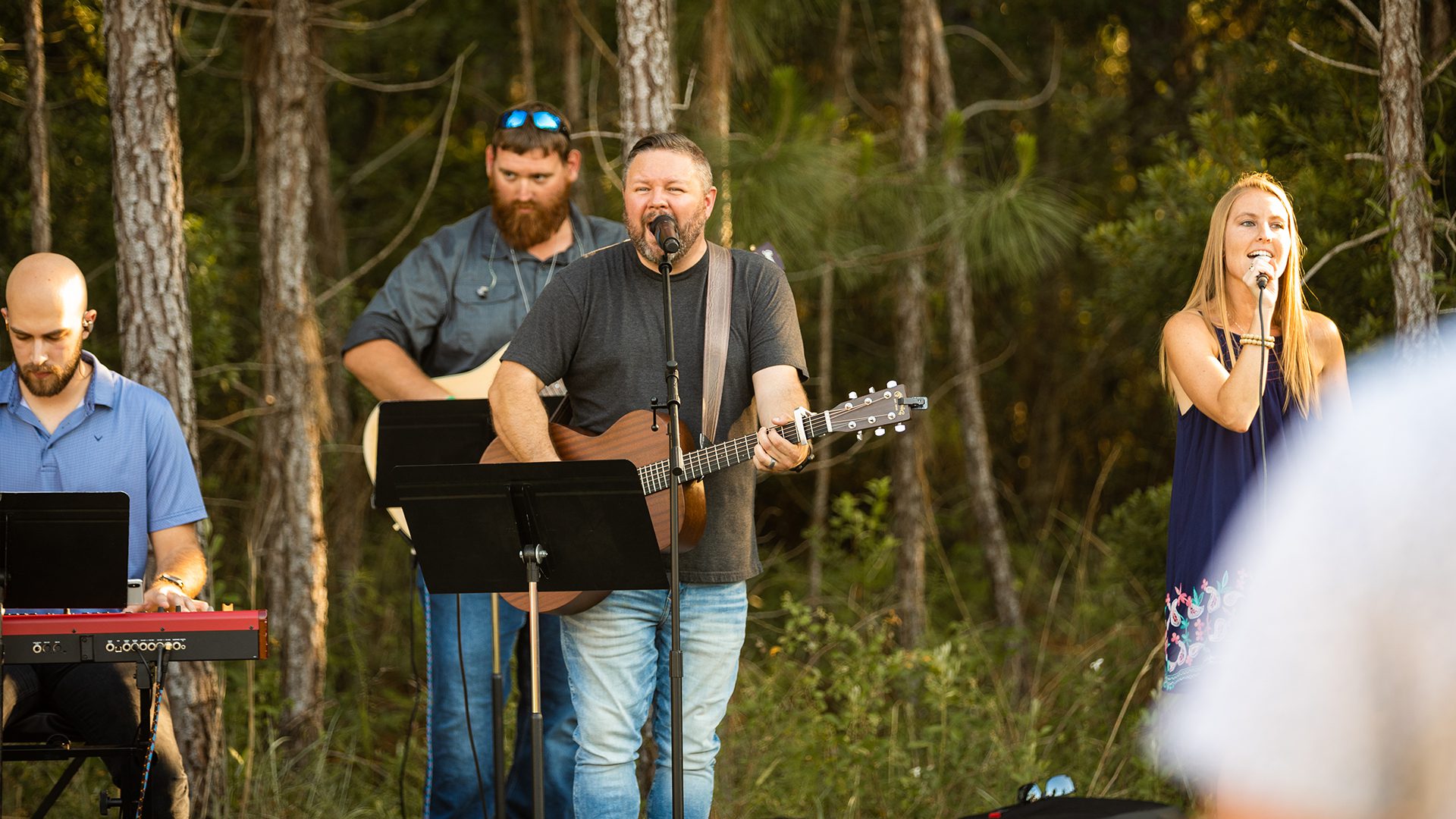
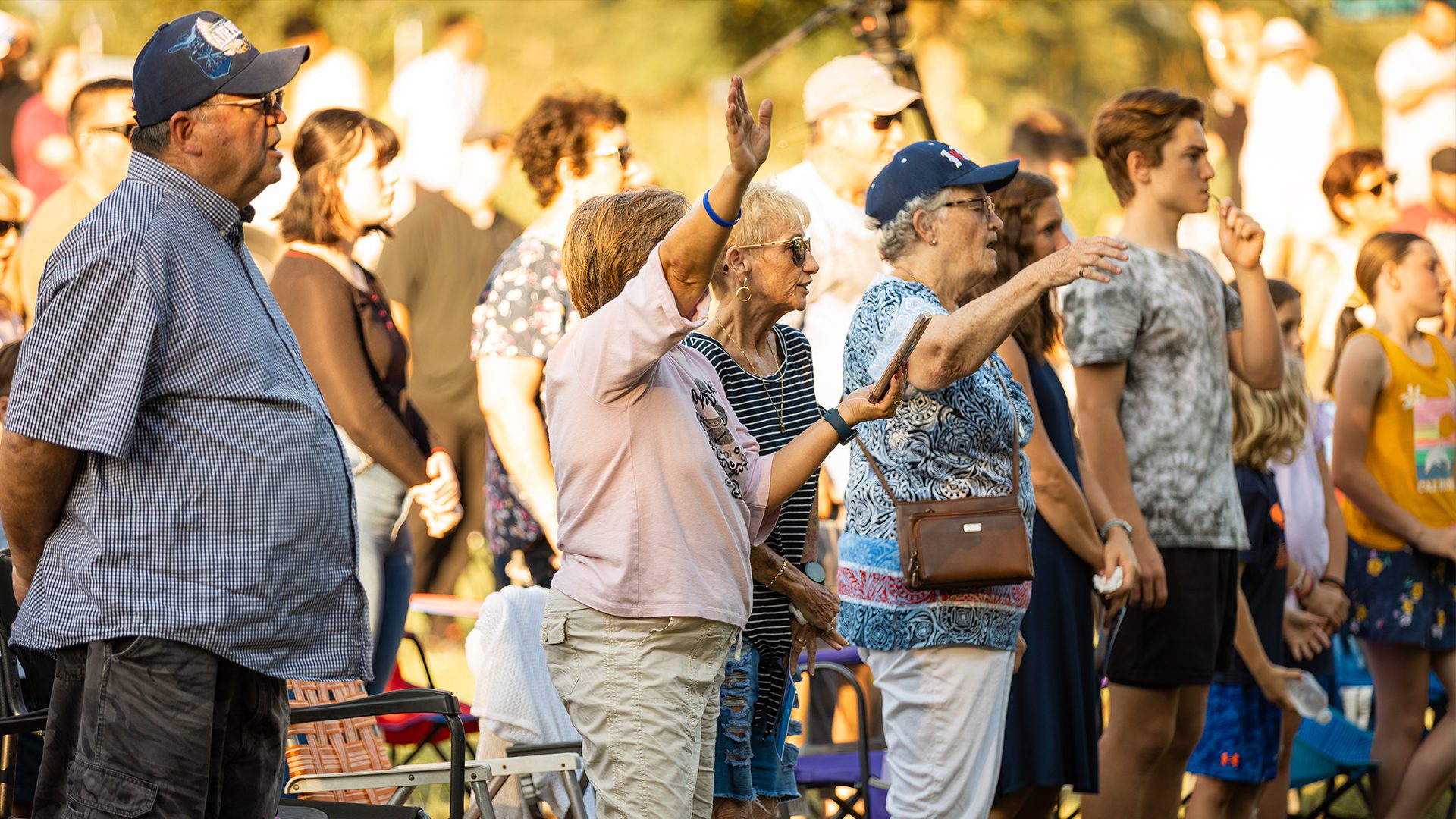
Trinity Oakleaf, launched in October 2014, is the second location for Trinity Baptist Church and recently celebrated seven years. “I have enjoyed seeing the unity this season in our church,” said Pastor Zac. “There are people in our church who have been dreaming of this for seven years alongside people in our church who have just begun the journey. We are all dreaming of seeing God finish this work in our church.”
Pastor Zac and Pastor Daniel hope that Trinity Oakleaf will continue to be an anchor in the community, one that God will use to reach and disciple the Oakleaf area. They expressed sincere gratitude to the church leadership and congregations across all Trinity campuses for their endless support to make this a reality. As they move forward, they ask for prayers that God would use this expansion to reach people and continue to provide financial provisions. “We have made a lot of progress toward meeting the financial need, but we still have more progress to make in order to fully fund the project,” said Pastor Daniel.
You can give to Multiply Mission HERE.
Trinity Oakleaf looks forward to having its first service on Easter 2023, so make sure to mark your calendars now! To stay in the loop on newest developments with Trinity Oakleaf, visit the website or follow us on Facebook at Trinity Baptist Church or on Instagram at TBCJax.
2022
The Need to Worship Together: Trinity Baptist Church
“Those who accepted his message were baptized, and about three thousand were added to their number that day. They devoted themselves to the apostles’ teaching and to fellowship, to the breaking of bread and to prayer. Everyone was filled with awe at the many wonders and signs performed by the apostles. All the believers were together and had everything in common. They sold property and possessions to give to anyone who had need.” – Acts 2:41-45
Imagine you were creating a recipe for the healthiest church ever – or maybe just since the days of Acts. What would you add to your ingredient list? What does a healthy church look like to you? Does it have a guiding mission, strategic goals, or both? Clarity about these factors is critical for a healthy church.
At Trinity Baptist Church, our mission is “Helping everyday people experience extraordinary life with God.” We accomplish this using the following strategies:
- Come Together in Worship
- Grow Together in Groups
- Serve Together in Ministry
- Go Together on Mission
A mission answers the “what” question while strategy answers the “how” question. Mission is what we are doing, strategy is how we do it. Strategy in church life is about a discipleship path, it includes where you go, and what you are called to do. As we move throughout the weeks, we are going to walk through each of the four strategies we use to achieve our mission. Our first strategy is rooted in worship and our need to do it together.
Defining Worship
To understand where we are today, we need to look back. Acts notes that the early church (first Christian community) was born out of a prayer meeting in the upper room and was brought to life supernaturally in a worship gathering where the Spirit of God came down. They committed themselves to living out their faith and devoted themselves to worship. They prioritized worshipping together and were deeply committed to it. Often misunderstood, worship is not asking for something from you, but rather something for you. If we fully commit to engaging in worship the way that the early church did, we could see radical transformation not only personally, but in a broadening and deepening of our relationships, unity in our church community, and an impacted city –– while God is still magnified throughout it all.
Given that, we must come together in worship, but why? Worship is centered on God’s word as a solid foundation (v. 41), forms a deep relationship between God and those we share the experience with (v.41), is built around the gospel celebration of baptism and communion (v.41), and is designed for spiritual communion with God (v.42).
The Wonder + Unity Factor
Now that we have defined worship, let’s dive a little deeper. As a human, we often feel we must have purpose to live our life to the fullest. As a unique creation by and for God, our worship is our offering. According to verses 43 and 44, engaging in worship with God inspires wonder and unity.
Wonder: Awe and Reverence
The people of Acts were blown away by the fact that they could really know God and see God moving. The God who demonstrates his love for you can and should be worshipped. By standing in a place of wonder and awe of God, we allow ourselves to value, love, and respect God. When we fail to worship, it is because we are not in awe or standing amazed in the presence of God for who he is and what kind of power he has shown.
Unity: Community with God, Community with Others
The idea of “together” and “all things common” referenced in Acts showed how they were being pulled toward communion with God and community with one another. The people were infused with a radical generosity toward others. They were giving, caring, and sharing at sacrificial levels because they had experienced radical grace from God.
The Secret Sauce (To Worshiping Together)
Yet, how is it possible to experience life transformation through a worship gathering? What’s the secret sauce? It starts with anticipating encounters with God (v.42) and celebrating the evidence of God (v.47).
Anticipation: Meet God with Worship
On the day of Pentecost, God came down accompanied by fire and wind. God has always demonstrated his willingness to come and meet with his people; think about Moses and the burning bush, Joshua before Jericho, and Elijah in the cave. These all serve as reminders that God comes to meet us, but we have to anticipate the encounter – by coming to God in worship.
Celebrate the Grace of God
Worship is more than anticipation; it is also a celebration. The people in Acts were praising God in celebration of what they saw God doing. Worship helps you to resist the natural tendency of becoming self-absorbed and self-centered. Instead, it recenters your focus on the grace God extends to you each day.
Summing It Up
We have learned a lot today. Let’s sum it all up in a few, short points:
- As a unique creation by and for God, our worship is our offering.
- We should desire to become great worshippers, radiating wonder, unity, anticipation, and celebration of the amazing God we serve.
- “If we haven't learned to be worshipers, it doesn't really matter how well we do anything else.” – Erwin Lutzer
- We must devote ourselves to worshipping together¬¬––it is the key to building a church that brings hope and healing to our city and to growing as followers of Jesus.
- Remember, worship is not asking for something from you, but rather something for you.
- Worship will radically change you when it moves your mind (what you know) to your heart (how you feel) to your will (the decisions you make).
2022
Kaleidoscope Story
A kaleidoscope is probably one of the most fascinating toys you may own as a child. Seemingly pretty simple upon first glance (and lacking in the fun factor), as you lift it up to your eye you are surprised by what you see. Dazzling colors that cause your eyes to zigzag back and forth transporting you into a world full of beauty, joy, and child-like wonder.
The same can be said for the Kaleidoscope Program at Trinity Baptist Church. Kaleidoscope is our ministry for special needs children and their families that promote beauty, joy, and cater to child-like wonder. The program is committed to loving our special needs children and their families; teaching the word of God through pictures, stories, songs, and crafts; including our children in the E-Theatre as much as possible; and providing a safe and happy environment for our children to thrive. The program is only available at our Hammond Campus during the 10:45am service and is directed by Susanna Zekas.
Recently we were able to sit down with the parents of Savannah, one of our Kaleidoscope Kids. Here’s their story:
“We started bringing Savannah to Kaleidoscope special needs class when she was three years old. Like many children with special needs such as autism, we knew it would be difficult for her to be supported in the typical children’s environment at church. Without a ministry such as Kaleidoscope, we would have been unable to attend church or one [of us] would have to care for Savannah while the other came to church.
Savannah represents a true fulfillment of Kaleidoscope’s two-fold mission to (1) love and care for children while their families attend worship and (2) help the children engage in TrinityKids to the extent that they are able to do so. Savannah, strong in her own right, has conquered many challenges over the past eight years and has blossomed into a smart, beautiful preteen. (stylerecap.com) She needs almost no support in E-Theatre (children’s church), loves to do the motions during worship, and even participates in games!
Up until a couple years ago, Savannah (an only child) did not tolerate the large group well and remained in the classroom for all or most of her time at church. Now we are so excited that she eagerly attends E-Theatre, joins in the singing, and listens attentively. In small group time, Savannah enjoys crafts, painting, coloring, and watching her favorite DVD of old-school Sunday School songs (Father Abraham, anyone?). Some of her favorites are Frozen, the color blue, and “Mackeydonalds” (McDonald’s) – a reward she receives when she is good at church, which is every week these days! Overall, we truly enjoy being a blessing and encouragement to our other families who have children with special needs, simply by sharing our story and offering a kind word and smile. We enjoy volunteering in the Kaleidoscope classroom once a month and are so thankful that this family calls Trinity their church home.”
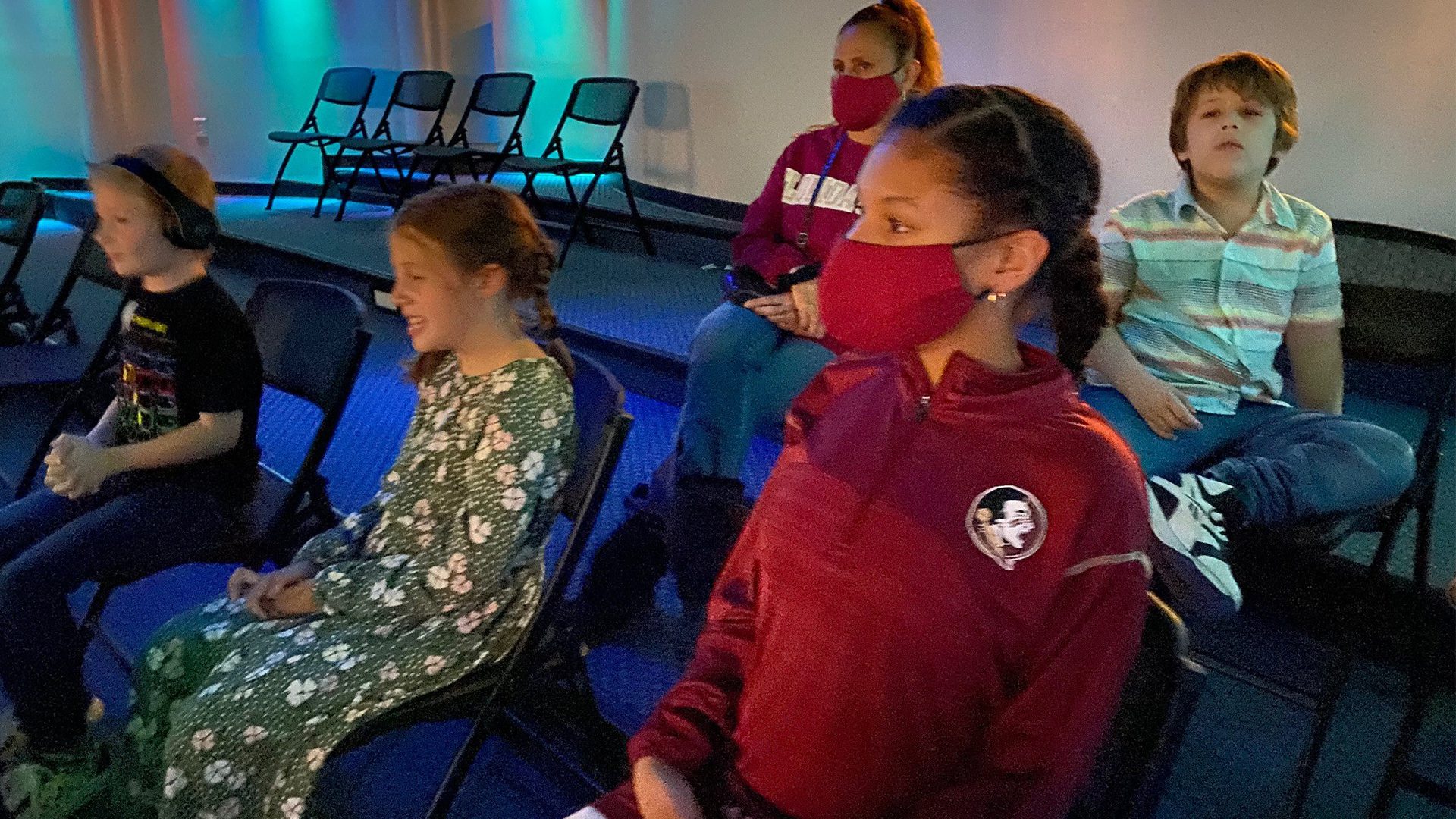
Interested in learning more about the Kaleidoscope Program or how you can get involved like Savanah’s parents to pour into our sweet children? We would love to have more volunteers to be able to help more families! Please visit https://tbc.org/kaleidoscope/ or reach out directly to the director, Susanna, at szekas.sz@gmail.com to get connected.
2021
Reaching Out with New Move-in Gifts - We’re thinking outside the BAG!
Andrew Carr, Outreach Director at the Hammond Campus, and Josh Evans, Oakleaf Connections Pastor, recently came together to develop a very creative method to reach and connect with people moving to our community. The ingenious idea was the creation of a “new move-in bag.” What better way to welcome new families to our area than with a thoughtful and useful gift? Research indicates that literally hundreds of families move to our area each year and the new home construction around us bears this out.
Beginning with our official Trinity logo gift bags (that was the easy part), the team explored many ideas to make a successful outreach tool. The result was to place a small potted succulent plant in the bag as a gift, as well as information about our church and a note of welcome to the community.
Assembly lines began putting together the bags, and the next step was creating a plan to distribute them. So, how did this unfold? Announcements during services invited our church family to participate by picking up gift bags to deliver to their new neighbors. Word was spread on social media. Trinity’s members were eager to participate, and bags were quickly picked up after church, far exceeding our expectations. Our people were so energized that multiple bags were taken, and our teams were pressed into producing more bags than were originally anticipated.
“We really didn’t have to sell this,”
explains Josh. “It didn’t take a lot of convincing because our people, our church family, are passionate about outreach. It was encouraging to see everyone excited to get involved.”
In the short span of a few weeks, over 300 gift bags have been distributed. Many receiving the gift bags have called to say thanks and to ask for information about our church. Andrew and Josh believe this will result in further interest over the coming months, and that the effect will be long term as families settle in and look for a church home or perhaps have a need.
“Success is not really in the numbers.”
In terms of numbers, this campaign appears successful. However, the greatest success might be seeing so many people in our church engaged in connecting with those outside our church. Andrew sums it up this way,

